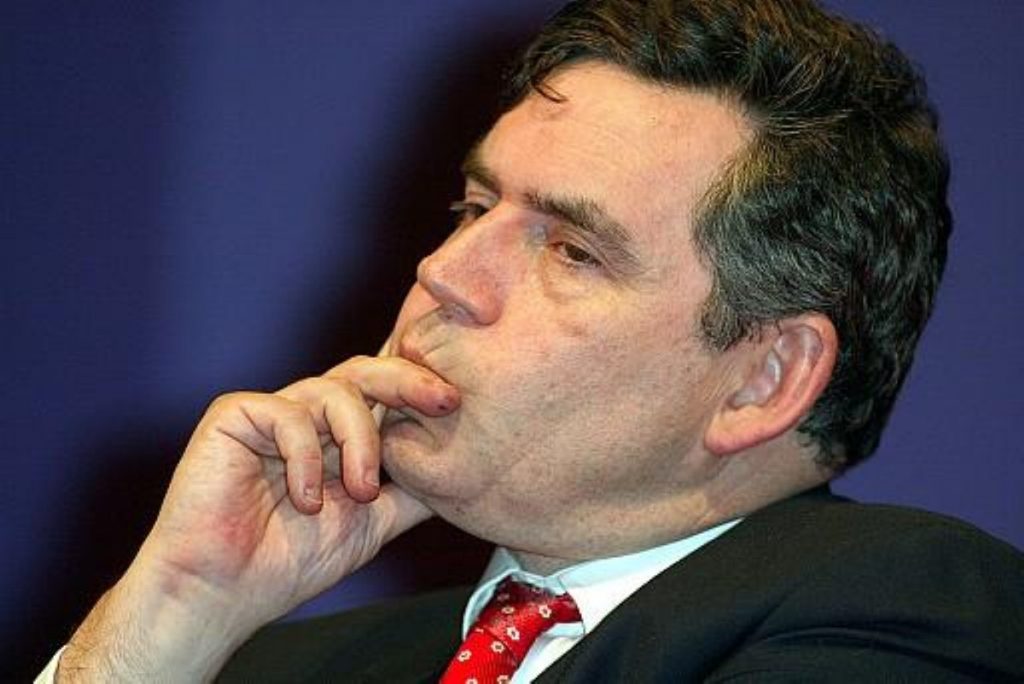Brown: ‘I will restore trust in politics’
Gordon Brown promised to restore trust in politics, in what will inevitably be seen as a criticism of Tony Blair’s leadership style.
Mr Brown pledged to lead a government fully accountable to parliament, adding that MPs would be involved in decisions over war and peace.
As chancellor, Mr Brown said his first move had been independence for the Bank of England to restore faith in the economy. As prime minister he would similarly push for an independent parliament to restore faith in politics.
“Government must be more open and accountable to parliament,” he warned.


He officially launched his leadership bid this morning under the slogan Gordon Brown for Britain. Overall Mr Brown said he would continue with New Labour policies delivered in a fresh, less celebrity-driven style.
But he indicated he would differ from Mr Blair on some policies, most notably placing greater safeguards on civil liberties. This did not mean he would abandon the government’s controversial identity card scheme, he stressed.
Mr Brown reminded reporters that he had been an architect of New Labour along with Mr Blair and said he would continue to follow the prime minister’s modernising agenda.
But in contrast to Mr Blair’s statement that he has “no reverse gear”, Mr Brown said the government must be humble enough to listen when it has fallen short and be confident enough to set new priorities.
Mr Brown said: “Part of experience and judgement is to recognise that when you fall short, you listen, you learn, and then you are confident enough to set new priorities.
“I’ve learnt also that the best way to meet people’s priorities is to involve and to engage people themselves. And for me this starts with governing in a different way.”
As part of this process Mr Brown said he would meet with groups from across the country ahead of the Queen’s speech and would also publish a consultation document.
He would also introduce a new ministerial code of conduct, as well as constitutional reforms that “strengthen the accountability of all that hold power”.
Who will be subject to this new code remains open after Mr Brown said his government would draw on all the available talent. He said he would not rule out giving ministerial jobs to people from all political affiliations. “I want a party of all the talents,” he stressed.
In a speech that heavily repeated references to the “new” he also promised new faces around the Cabinet table.
Mr Brown concluded: “This will be a listening and learning government if I have the privilege to lead it.”
Mr Blair has increasingly alienated his critics by refusing to change tract and insisting that he governs according to his convictions. His government has also been dogged by claims it has been overly reliant on spin.
As politicians review Mr Blair’s decade in Number Ten, ex-Conservative leader Michael Howard accused the former New Labour media chief Alistair Campbell of undermining trust in politics and the government.
Speaking on BBC’s Newsnight, Mr Howard said Mr Blair had struck him as “absolutely straightforward” when he had shadowed him in the Home Office.
“I think [Alastair Campbell] is the man who is responsible for what has changed,” he said.
Mr Howard continued: “I think the way in which Alastair has conducted his operations when he was in Downing Street, when he bullied and lied his way across our political life, consistently, did more to lower the tone of our political life and our public life than anything else.
“That was all done with Tony Blair’s connivance and authority, so Tony Blair has to bear the ultimate responsibility for it.”












